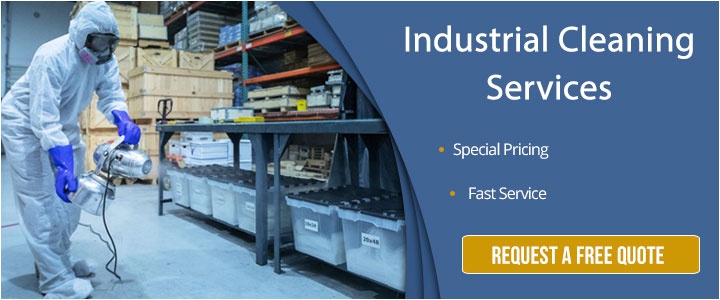Ensuring industrial tanks are clean and regularly serviced is critical to keeping your company’s applications running without interruption.
Yet it can be astonishing how many companies and entities overlook the importance of industrial tank cleaning. A lot can go wrong, from a buildup of difficult-to-remove sludge and grime to contamination of the tank’s contents.
Industrial cleaning services are specialized companies, and they are not the same commercial cleaning services that you may find available to clean corporate office spaces. Industrial cleaning companies are experienced in cleaning a wide variety of tanks. They also may offer additional services like repairing damaged interior walls or applying protective coatings.
Here are eight reasons why you NEED industrial tank cleaning services and who you should turn to for help.
- Contamination is a concern
- You should have a routine equipment maintenance plan
- You prioritize safety
- You got an indicator alert
- You have an upcoming tank inspection
- You are swapping contents
- A mechanical failure occurs
- You want to save time and money
1. Contamination Is A Concern
If you operate in an environment where contamination of the contents in your industrial tank is a concern, then you need industrial tank cleaning services.
need industrial tank cleaning services.
Many industries utilize tanks for storage, from food processing to cosmetics, oil and gas refining, and pharmaceuticals. Industrial fuel storage tanks can also hold a wide variety of substances, from chemicals to oil, petrol, diesel, solvents and other hazardous liquids.
Over time, sludge, grime and scales can build up on the tank’s walls and baffles. This can create an environment where your contents become contaminated. Your tank may even be damaged by negligence, leading to costly repairs.
2. You Should Have A Routine Equipment Maintenance Plan
If you have a routine equipment maintenance plan, it should include industrial tank cleaning services. One community learned this the hard way. A South Carolina water tank sat unmaintained for years as sludge grew inside. It ended with a public relations nightmare for town officials as community members complained for months about brown water coming from their faucets.
Industrial water tanks should be cleaned at least twice a year. However, how often you have it cleaned varies if you store chemicals in your tank.
Check with OSHA or organizations like IDR Environmental Services that specialize in your industry for any requirements that pertain to your tank.
3. You Prioritize Safety
Working with professional industrial cleaning companies conveys to your employees that you care about their safety and ensures you meet all OSHA regulations.
and ensures you meet all OSHA regulations.
Tank cleaning companies should be experienced in working with the types of chemicals or substances found in your tanks. As they begin the tank cleaning process, they will evaluate working conditions and potential hazards. They will then typically vent the tank to remove any dangerous vapors.
There are additional dangers to tank cleaning, from limited exit points to the risks of working around flammable liquids like fires and explosions. Electrical equipment and static electricity can ignite flammable products in the tank, so it’s critical that employees who aren’t familiar with industrial tank cleaning procedures refrain from taking on this responsibility.
4. You Get An Indicator Alert
While routine maintenance is important, there are certain situations where immediate action is warranted. One of these situations is if you get an indicator alert on your industrial tank.
Indicator alerts can warn of the need for an easy fix or a serious situation. Leaks, clogs, slow dispenser flow, contaminated samples and poor venting may all trigger alerts.
If you get an alert, it’s best to assess the situation quickly and call for help from an experienced industrial cleaning services company when warranted.
5. You Have An Upcoming Tank Inspection
Before an inspection of your tank, you should take it out of service and clean it. Regular tank inspections can help identify even the smallest issues that could develop into major problems. It’s important to clear out your tank so that investigators get a clear and accurate view of it.
State requirements often dictate how often your tank must be inspected. For example, water tanks are often inspected every few to five years.
6. You Are Swapping Contents
If you are swapping contents, you should always clean your tank before filling it with the new substance.
Any residual products left behind could damage or contaminate the new contents. For example, if you are switching the contents of a tank from an unrefined product (like crude oil) to a refined product (like gasoline), you will need a thorough cleaning. If any residue and impurities from the crude oil are left behind, this could contaminate the gasoline, creating a costly mistake.
It’s also possible you could create a health and safety hazard if the two substances chemically react to each other, causing a fire, explosion or dangerous vapors.
7. A Mechanical Failure Occurs
If your tank requires maintenance or repairs to the structure, you must empty its contents and have it thoroughly cleaned. There are many reasons for a mechanical failure, from aging parts to corrosion, improper construction, incompatibility of the fluid with the tank walls, poor maintenance and even violent weather.
Repair technicians need a safe working environment before entering. Ensuring your tank is clean not only ensures this, but also protects your company from liability issues.
8. You Want To Save Time And Money
Keeping your industrial tanks clean ensures greater safety standards and allows you to reduce the time and money you would need to spend on unscheduled repairs. Tank downtime can be expensive, costing your company potentially thousands each month that the tank sits there unused.
Contaminated contents inside your tanks can also be costly, as well as the manpower needed to remove these contents. Once your contaminated substances are removed, you’ll need to consider your options for hazardous waste disposal if needed.
What To Look For In Industrial Tank Cleaning Services
Partnering with an experienced and professional tanking cleaning company is important to protect your investment in equipment, your employees and your business.
Top industrial cleaning companies should:
- Be bonded and insured: A cleaning company will deal with expensive equipment like holding tanks, so it’s important to ask for insurance verification for both workers' compensation and general liability.
- Be certified to handle hazardous waste: If your tank holds hazardous waste, your cleaning company may have to remove waste from your property after cleaning.
- Provide emergency response: While industrial tank cleaning can be a routine service, it’s a good idea to hire a company that is experienced in emergency situations, especially if you have hazardous chemicals inside your tank.
- Offer a walk-through: Walk-throughs are collaborative in nature and offer an opportunity to identify potential problems with your tank or other areas of concern that should be addressed. A walk-through also allows a professional to talk about how often your tank should be cleaned.
- Clean using biodegradable agents: Companies that use biodegradable cleaning agents when possible during the tank cleaning process will help you avoid adding one more chemical to your hazardous waste streams or contaminating the tank when you refill it with your fluids.
- Provide you with references: Reputable companies should always be willing to provide you with references of their work. Reach out to other businesses that have hired the vendor so that you can hear about those companies’ experiences.
One final note: As we mentioned above, routine tank cleaning is important to include in any maintenance plan. Because tank cleaning services are often performed as part of an ongoing contract, ask about the terms of the contract, such as if and when you can cancel and whether signing a contract affords you a better deal.


Comment